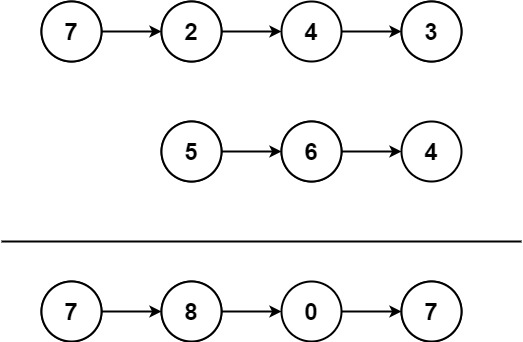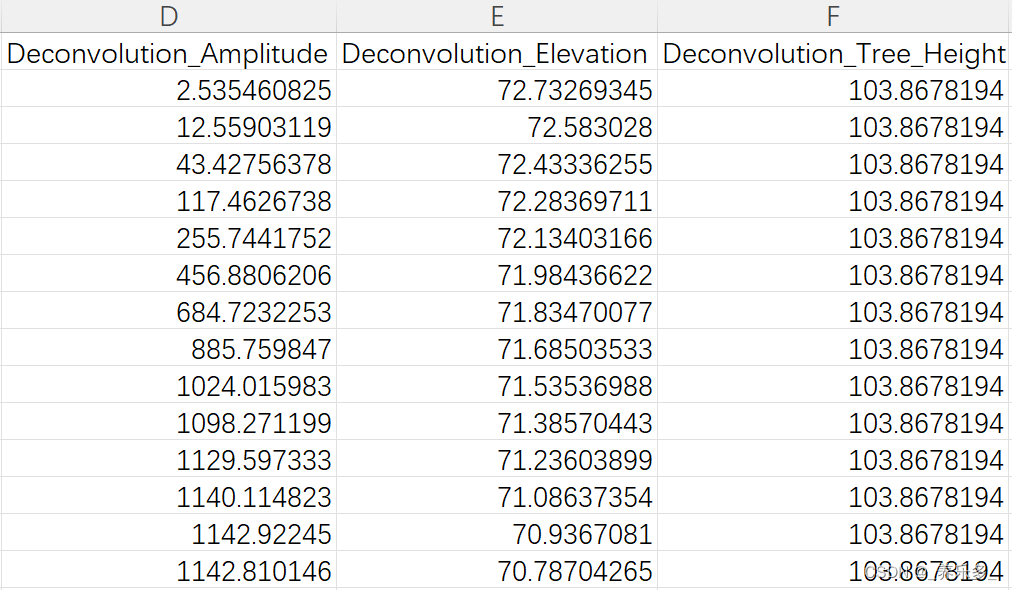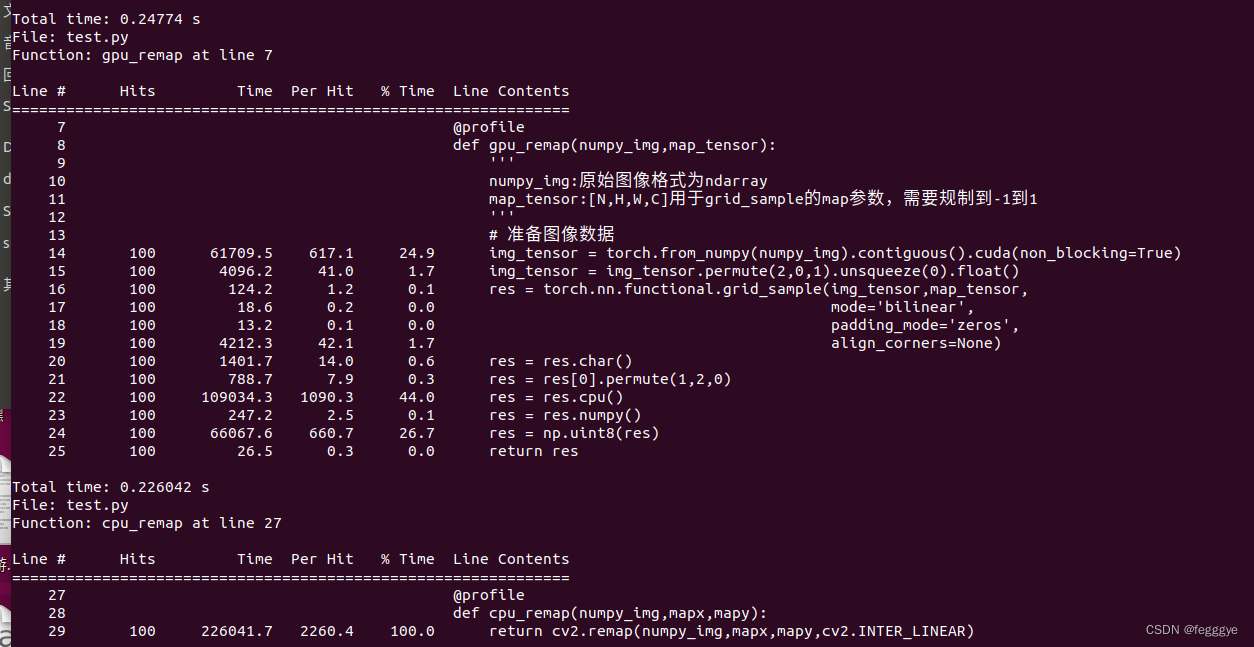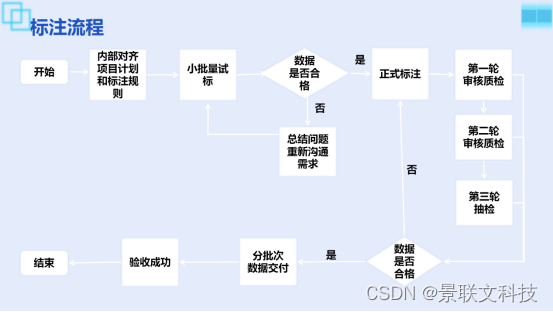题目描述
You are given a graph with n vertices and m undirected edges of length 1. You can do the following operation on the graph for arbitrary times:
Choose an edge (u,v) and replace it by two edges, (u,w) and (w,v), where w is a newly inserted vertex. Both of the two edges are of length 1.
You need to find out the maximum number of vertices whose minimum distance to vertex 1 is no more than k.
输入描述:
The first line contains three integers n (1≤n≤10^5), m (0≤m≤2⋅10^5)and k (0≤k≤10^9). Each of the next m lines contains two integers u and v (1≤u,v≤n), indicating an edge between u and v. It is guaranteed that there are no self-loops or multiple edges. 输出描述: Output an integer indicating the maximum number of vertices whose minimum distance to vertex 1 is no more than k.
输入:
8 9 3
1 2
1 3
1 5
3 4
3 6
4 5
5 6
6 7
7 8输出:
15题意:给定n个点,m条边,k为给定数值,你有一种操作,相当于你选择一条边,加入任意个点,可以操作任意次,问最后从1出发能到达的点的总数最大。
解析:求一次bfs树,把非树边的边进行拓展 ,也同时把叶子节点进行拓展,此时就是最优的情况,至于证明,引用下官方题解专业证明.
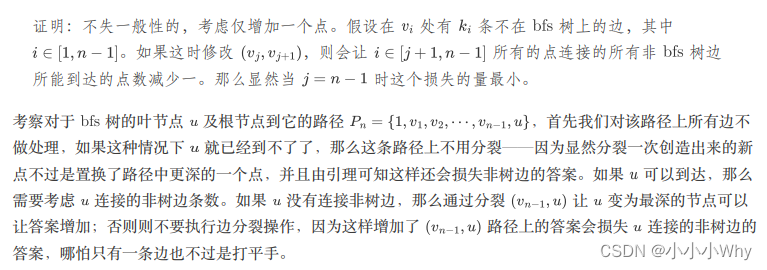
注意:特判一下没有边的情况,遍历叶子节点时候直接从2开始,因为1为根节点,不能算叶子节点。
#include <bits/stdc++.h>
using namespace std;
const int N=2e5+5;
typedef long long ll;
typedef pair<int,ll> PII;
vector<int> v[N];
int in[N];//记录入度,入度为1即是叶子节点
map<PII,int> mp;
struct node
{
int a,b;
bool flag;//是否为非树边
}tr[N];
ll dist[N];//记录从1出发到点u的距离
void bfs()
{
queue<int> q;
q.push(1);
memset(dist,-1,sizeof dist);
dist[1]=0;
while(q.size())
{
int u=q.front();
q.pop();
for(int i=0;i<v[u].size();i++)
{
int j=v[u][i];
if(dist[j]==-1)
{
dist[j]=dist[u]+1;
q.push(j);
tr[mp[{u,j}]].flag=true;//为树边
tr[mp[{j,u}]].flag=true;//为树边
}
}
}
}
void solve()
{
int n,m,k;
scanf("%d%d%d",&n,&m,&k);
for(int i=1;i<=m;i++)
{
int a,b;
scanf("%d%d",&a,&b);
tr[i]={a,b};
mp[{a,b}]=i;
v[a].push_back(b);
v[b].push_back(a);
in[a]++,in[b]++;
}
if(m==0)
{
printf("1\n");
return;
}
bfs();
ll ans=1;//自身
for(int i=1;i<=m;i++)
{
int a=tr[i].a,b=tr[i].b;
bool flag=tr[i].flag;
if(!flag)//是非树边,进行拓展
{
//注意需要判断dist是否为-1,-1表示无法到达
if(dist[a]<k&&dist[a]!=-1) ans+=k-dist[a];
if(dist[b]<k&&dist[b]!=-1) ans+=k-dist[b];
tr[mp[{a,b}]].flag=true;//此时表示已经使用过
tr[mp[{b,a}]].flag=true;
}
}
for(int i=2;i<=n;i++)
{
if(dist[i]!=-1&&in[i]==1&&dist[i]<k) ans+=k-dist[i];
if(dist[i]!=-1&&dist[i]<=k) ans++;
}
printf("%lld\n",ans);
}
int main()
{
int t=1;
//scanf("%d",&t);
while(t--) solve();
return 0;
}
